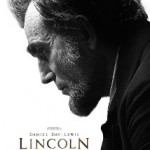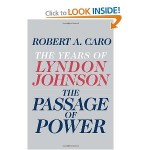 Spielberg’s Lincoln left me misty-eyed and a little unsettled about our politics today. We are definitely in a new age of American politics.
Spielberg’s Lincoln left me misty-eyed and a little unsettled about our politics today. We are definitely in a new age of American politics.
First, let me give you an Informed Not Inflamed review of the film, and then I will discuss the implications for today.
Everyone should see Lincoln. It is brilliant film-making. American pride will well up in you.
However, if you’re looking for an action flick, this is not your choice. This is a dialogue film much in the tradition of Aaron Sorkin. Still, Spielberg gives us some great images through a gauze-like lens that brings us into 1865.
What struck me most were the performances. In fact, it is more of a tribute to Spielberg to capture and draw out the performances compared to any great shot he brought us. Daniel Day Lewis easily wins the Oscar. Sally Field and Tommy Lee Jones were superb.
I could go on about many of the actors. But let me bring up two because they’re friends and golfing buddies. Bruce McGill is one of our best character actors and Greg Itzin is one of our most dastardly.
If anything, I hope the film spurs further interest in the history of the Civil War and its effect on today.
First, I would encourage you to read Doris Kearns Goodwin’s book, “Team of Rivals.” I actually listened to it on tape with Richard Thomas a number of years ago. At times, I had to stop the car while listening fearing I would cause an accident; I was so mesmerized and overwhelmed. You want to see tears in my eyes; then read me the Gettysburg Address.
Even though the film is based on the book, the film misses a lot of the book’s theme. Goodwin delves deep into Lincoln’s ability to bring his rivals into the cabinet to help save the union. In the film, we only see the cabinet struggle with Lincoln’s goal of passing the 13th Amendment abolishing slavery. That is not a knock on the film at all. There is only so much a film can do; a book lets you grab the full back story about these people Spielberg brings to life on film.
Next, try to watch a PBS special on death and the Civil War by, ironically, Ken Burns’s brother. As horrible as it was, the aftermath of the Civil War led to many of our esteemed institutions like Arlington National Cemetery and the VA; and how we as a nation takes on death.
Another article talks about how deadly the Civil War really was. The researchers say the death toll of 650,000 Americans is off by 100,000. That means 750,000 Americans died. Spielberg’s opening scene captures this horror.
Spielberg should be applauded for releasing the film after the presidential election. An earlier release would have led to cries of pro-Obama propaganda. There will be connections drawn from the passage of the 13th Amendment and the Affordable Care Act. I can’t comment yet on that; I will let history be a guide which means we can discuss that in a decade.
That’s my review.
Here are my unsettling thoughts that we all should be thinking about.
If anything, Spielberg brought us a political drama. He documented how the 13th Amendment became law, abolishing slavery. But he also showed how it is done politically. And for those of us who want to think of American purity, we realize that politics is like watching sausage making.
David Brooks writes about it here in a piece called Why We Love Politics. He makes some good points. What struck me was how uncivilized lawmakers were on the floor of Congress. They sounded British, calling each other scum. And we scoff at someone yelling, “You lie.” That was nothing.
But Brooks’ points resonate with people like me who love the game of politics and how tough and dirty it really is. And it’s the dirty games that actually drive the laws that we live by.
Lincoln blatantly used patronage jobs to get Democrats to vote for the Amendment. Sure, he used philosophical arm-twisting and appeals to the heart to win votes. But it is clear what really pushed votes – money.
 Fast forward to the 1960s and LBJ. Read Robert Caro’s latest tome on LBJ’s years as VP and then President. He was able to pass legislation like the Voting Rights Act by giving away the people’s stuff to Congressmen in return for their votes.
Fast forward to the 1960s and LBJ. Read Robert Caro’s latest tome on LBJ’s years as VP and then President. He was able to pass legislation like the Voting Rights Act by giving away the people’s stuff to Congressmen in return for their votes.
I am thinking about all this as I am leaving the theater. And then it hits me. We are in a new age of politics – so different from Lincoln’s and LBJ’s – even George W. Bush’s.
Why? We have nothing to “give away” anymore. We have already given it all away. For the first time, politicians have to take things back.
On the one hand I think: so how will we do it now?
On the other hand I think: well, maybe we will really create a fiscal system that will be based on reality and not the patronage and corruption of money in politics.
And, more importantly, we the people will have to truly sacrifice to help hold together, if not the Union, at least the American Dream for all.
That might even stagger Lincoln.
Comments on this entry are closed.